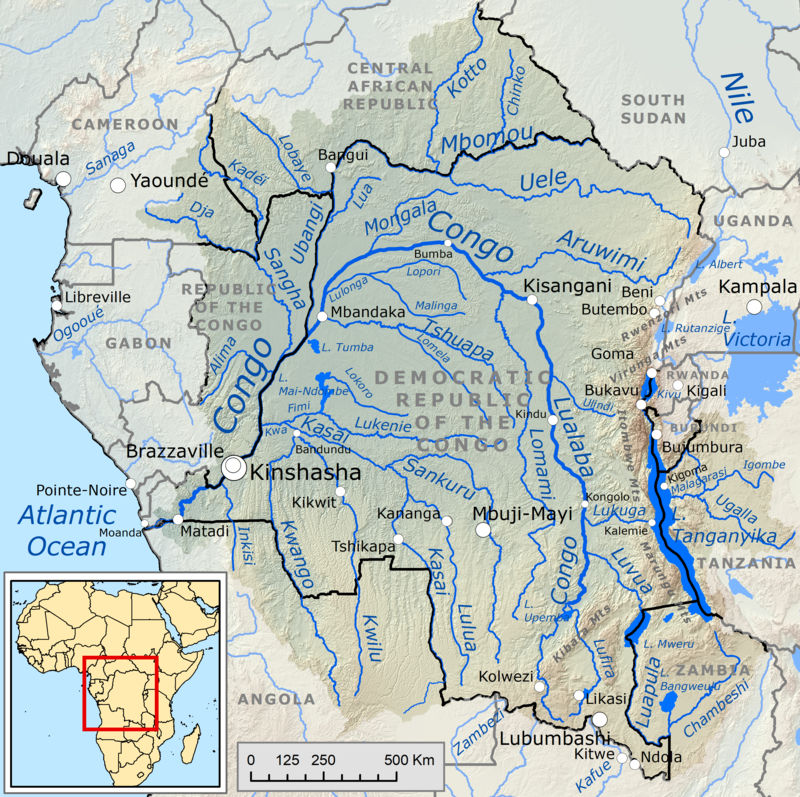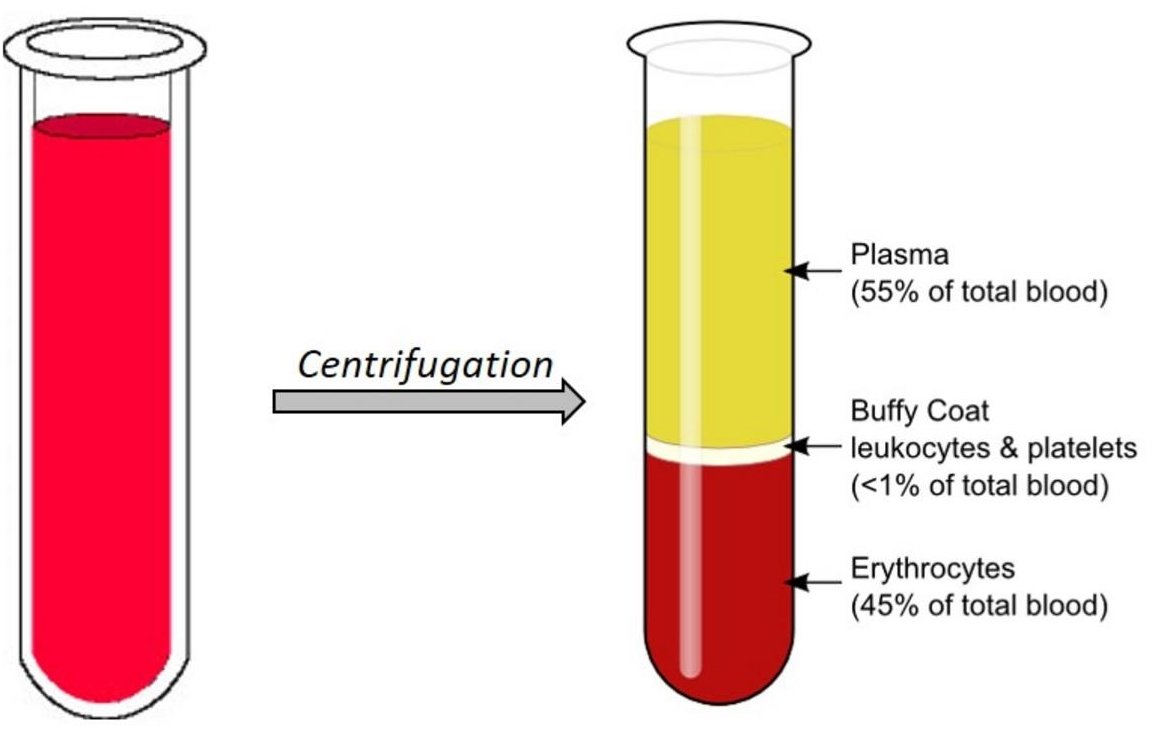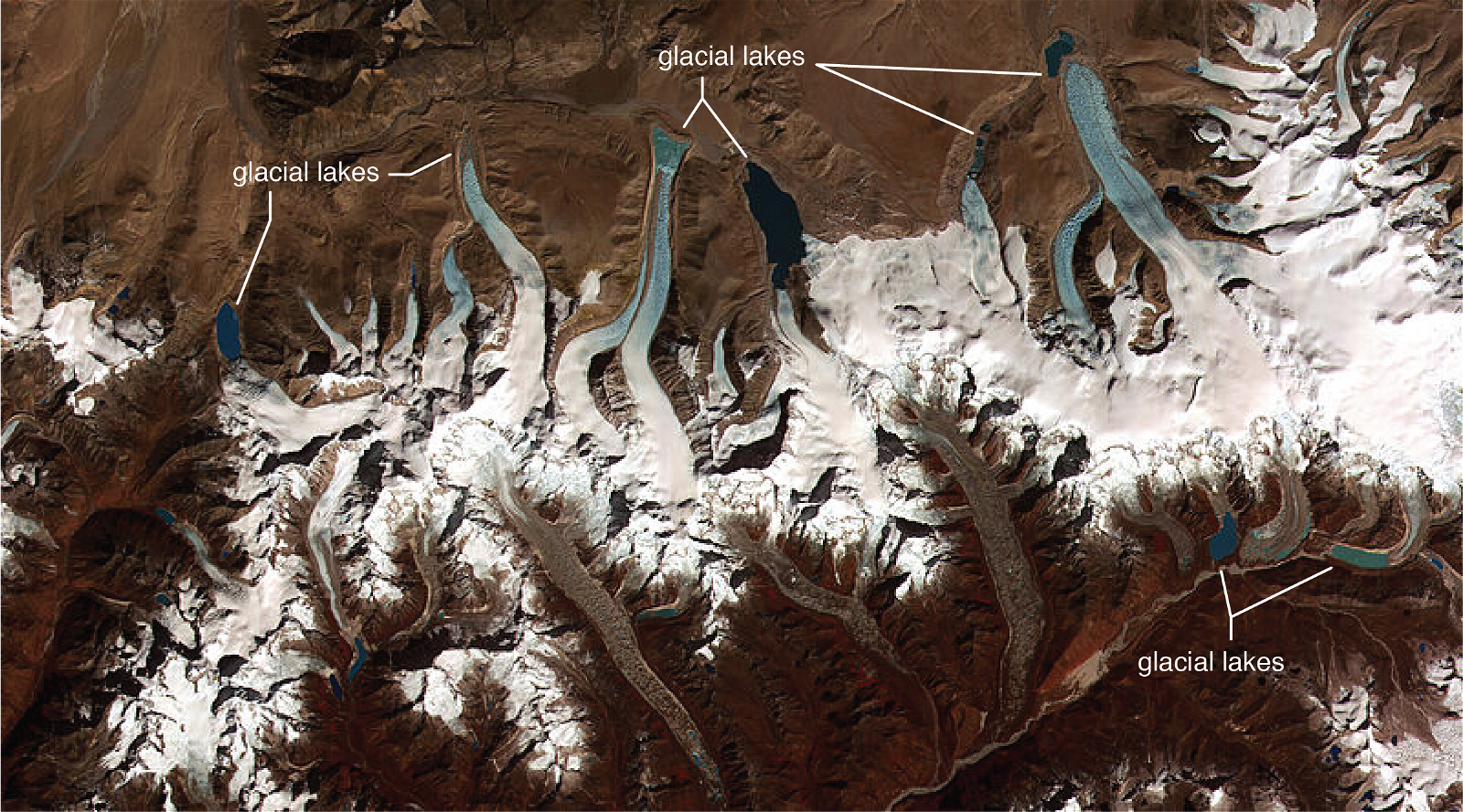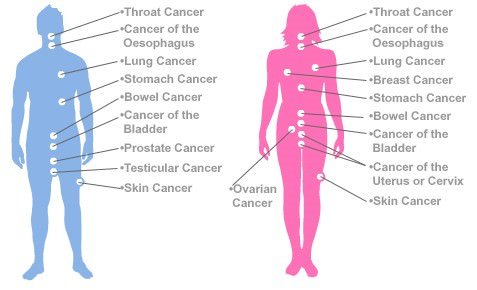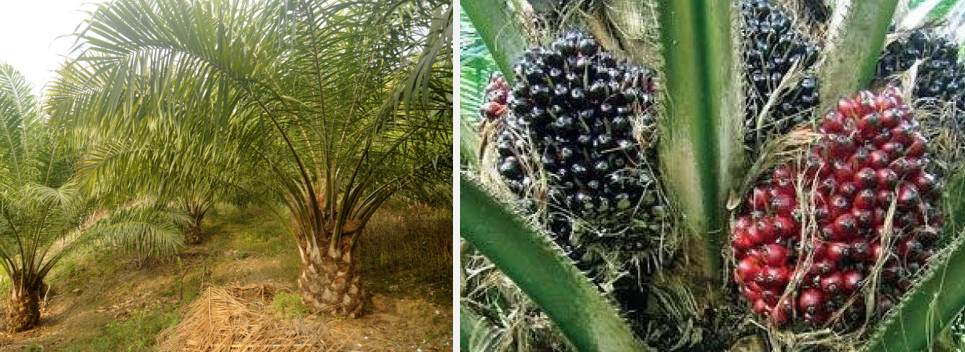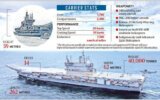
Current Affairs October 27, 2023: Twin Cyclones, Fujiwhara Effect, Comprehensive Nuclear-Test-Ban Treaty, Preventive Detention, Ethics Committee
Subscribers of "Current Affairs" course can Download Daily Current Affairs in PDF/DOC
Subscribe to Never Miss an Important Update! Assured Discounts on New Products!
Must Join PMF IAS Telegram Channel & PMF IAS History Telegram Channel
{GS1 – Geo – PG – Climatology} Twin Cyclones
- Context (DTE | IE | IT): Twin cyclones Tej (over Arabian Sea) and Hamoon (over Bay of Bengal) developed over the north Indian ocean.
- Twin cyclones are two tropical cyclones that develop simultaneously in the same region.

Reasons for Formation of Twin Cyclones
Equatorial Rossby Waves
- Oceanic and atmospheric rossby waves (or Planetary waves) occur due to the Earth’s rotation (Coriolis Force). These waves occur in rotating fluids.
- Oceanic rossby waves are huge waves in the ocean with wavelengths of around 4,000–5,000 kms.
- This system consists of a vortex in the northern hemisphere mirrored by a corresponding one in the southern hemisphere.
- The northern vortex spins counterclockwise with a positive spin, while the southern vortex spins clockwise with a negative spin.
- Both have positive value of the vorticity which is a measure of the rotation.
Madden-Julian Oscillation
- MJO is an eastward moving trough (series of thunderstorms) in the tropics that recurs every 30 to 60 days.
- The MJO consists of enhanced rainfall convective phase and suppressed rainfall convective phase.
- During enhanced phase, increased cloud cover reduces solar radiation reaching the ocean surface, leading to cooling effects.
- Conversely, during the suppressed phase, reduced cloud cover allows more solar radiation to penetrate the ocean, leading to warming of SSTs.
Fujiwhara Effect
For details on Fujiwhara Effect > PMF IAS August, 2023 CA |
{GS2 – Education – NEP} APAAR ID
- Context (IE | ET): The Automated Permanent Academic Account Registry (APAAR) ID, or “One Nation One Student ID Card,” is a new program launched by the Ministry of Education (MoE).
- It helps students keep track of their academic information, like degrees, scholarships, and rewards, all in one place.
- APAAR is part of the ‘One Nation, One Student ID’ initiative based on the National Education Policy (NEP) of 2020.
Aims
- Simplify education by reducing the need for physical documents.
- Help state governments track literacy and dropout rates.
- Enhance state performance in education.
- Reduce fraud and duplication of certificates.
- Ensure authenticity by allowing only trusted sources to deposit credits into the system.
How APAAR ID Works?
- Each student gets a unique APAAR ID linked to the Academic Bank Credit (ABC), a digital repository of their educational credits.
- ABC stores credits earned by students in both formal and informal learning.
- Students can digitally store certificates and credits.
- When students change schools, their ABC data moves with them using the APAAR ID, eliminating the need for physical document transfers.
How to Get an APAAR ID?
- Registration for creating an APAAR ID is voluntary, not compulsory.
- Students need to provide basic information, verified using an Aadhaar number.
- The Aadhaar number is only used for verification and not shared during registration.
- Students can accept or decline to share their Aadhaar number and demographic details with the MoE.
- For minors, parents must sign a consent form for using the student’s Aadhaar number.
Issues
- Privacy concerns: Parents and students worry about sharing Aadhaar details and potential data leaks to external parties.
{GS2 – IR – Laws} Comprehensive Nuclear-Test-Ban Treaty (CTBT)
- Context (IE): Russia might revoke its Comprehensive Nuclear Test Ban Treaty (CTBT) ratification to achieve parity with the US, which has not yet ratified CTBT.
- The CTBT bans ALL nuclear explosions for military or peaceful purposes. It was signed by 187 countries and ratified by 178.
- The UNGA adopted CTBT in 1996, but it has not entered into force, as eight Annex 2 nations (China, India, Pakistan, North Korea, Israel, Iran, Egypt, and the US) have not ratified the treaty.
- Annex 2 to the Treaty lists the 44 States (nuclear technology holder states) that must ratify the treaty for it to enter into force.
- The CTBT establishes the Comprehensive Nuclear-Test-Ban Treaty Organization (CTBTO), which ensures treaty implementation.
Signatories of CTBT
|
Did the CTBT stop nuclear testing?
- Since the CTBT, ten nuclear tests have taken place. According to the UN:
- India conducted two in 1998.
- Pakistan also had two in 1998.
- North Korea conducted tests in 2006, 2009, 2013, 2016 (twice) and 2017.
- The United States last tested in 1992, China and France in 1996, and the Soviet Union in 1990.
- Russia, which inherited most of the Soviet nuclear arsenal, has never conducted a nuclear test.
History of CTBT
- The US conducted the world’s first successful nuclear weapons test in July 1945. Four years later, the Soviet Union tested their first nuclear weapon.
- These tests triggered an arms race between the two superpowers. Between 1945 and 1996, more than 2,000 nuclear tests were carried out.
- The radioactive fallout from those tests drew criticism from around the globe. As a result, several attempts were made to curb the explosive tests.

Limited Nuclear Test-Ban Treaty (LTBT) (1963)
- It prohibited nuclear testing in the atmosphere, outer space, and underwater, but underground tests were still permitted.
Threshold Test Ban Treaty (TTBT) (1974)
- It was signed between the US and the Soviet Union.
- It established a nuclear threshold and prohibited them from conducting tests that exceed 150 kilotons.
Comprehensive Nuclear-Test-Ban Treaty
- Geopolitical tensions eased after the end of the Cold War and the disintegration of the Soviet Union.
- The UN took advantage of the situation and adopted the CTBT in 1996.
{GS2 – Polity – IC – FRs} Preventive Detention
- Context (IE): DY Chandrachud called Telangana’s use of the preventive detention law “a callous exercise of exceptional power.”
- Preventive detention means the detention of a person by the state without trial and conviction but merely on suspicion. The detention could be up to a year unless extended.
- The district magistrate can order to detain a person to maintain “public order.” The state can delegate this power to the police as well.
- The state must inform the detainee of the grounds for their detention.
- The grounds must be presented in a language the detainee can understand.
- A basic set of facts justifying detention must be communicated at once, and the state cannot later include new reasons to strengthen the original detention order.
- The state does not need to disclose facts if it is against the public interest to do so.
- The detainee can challenge the detention order in a court of law.
- If the detention is ordered for more than 3 months, it requires the approval of an Advisory Board.
- States set up these Boards, which generally consist of retired judges and bureaucrats.
- A detainee is generally not allowed legal representation before the Board.
- If the Board confirms the detention, the detainee can move to court challenging the detention order.
|
Role of Court
- Judicial review for preventive detention is limited because IC prioritises the state’s “subjective satisfaction” when ordering a detention.
- A judicial review is limited to whether the Advisory Board applied its mind, considered all material facts and whether the state showed obvious malafide in ordering detention.
Preventive detention under IC
- IC contains provisions for preventive detention under clauses (4) to (7) of Article 22 (Part III: FRs).
- Article 22 of IC prescribes protection against arrest and detention.
- However, it has a major exception under Article 22 (3) (b), which states that none of those safeguards apply to any person arrested or detained under any law providing for preventive detention.
|
Way forward
- Preventive detention is an exceptional law and should be used sparingly. It shouldn’t be used to avoid bail and keep someone in jail longer.
- The SC, on many occasions, said that:
- Preventive detention cannot be invoked to circumvent the granting of bail.
- The state cannot detain an accused when he is likely to be released on bail for the same offence.
Article 22 of IC: Protection against arrest and detention in certain cases
|
{GS2 – Polity – IC – Parliament} Lok Sabha Ethics Committee
- Context (IE): The Ethics Committee of the LS has summoned Trinamool Congress MP Mahua Moitra regarding allegations made by BJP MP Nishikant Dubey.
- The Lok Sabha Ethics Committee consists of fifteen MPs nominated by the Speaker for a period of one year.
Procedure for complaints
- Any person can complain against a Member through another LS MP, with evidence of the alleged misconduct and an affidavit stating that the complaint is not “false, frivolous, or vexatious”.
- If the Member himself complains, the affidavit is not needed.
- The Speaker can refer a complaint against an MP to the Committee.
- The Committee does not entertain complaints based only on media reports or sub judice matters.
- The Committee makes a prima facie inquiry before examining a complaint.
- It makes its recommendations after evaluating the complaint.
- The Committee presents its report to the Speaker.
- LS Speaker asks the House if the report should be considered.
- There is also a provision for a half-hour discussion on the report.
Overlapping Roles
- The work of the Ethics Committee and the Privileges Committee often overlap.
- An allegation of corruption against an MP can be sent to either body, but usually, more serious accusations go to the Privileges Committee.
- The Ethics Committee can take up only cases of misconduct that involve MPs.
History of Ethics CommitteesEthics Committee of RS
Ethics Committee of LS
|
{GS2 – Vulnerable Sections – Children} Meta Sued for Harming Youth Mental Health
- Context (IE | BS | FP | IT): US states have sued Instagram and Facebook’s parent company, Meta, for causing youth mental health crises through the addictive nature of its social media platforms.
- Allegations claim the company knowingly targeted vulnerable youth for profit.
- Through manipulation, it has induced addictive and compulsive social media use among youth.
- The mental issues that have developed in youth include body dysmorphia, a mental health condition in which a person becomes obsessed with a perceived flaw in their appearance.
Use of Social Media by Indian Youth
- A recent India survey reveals that 60% of 9 to 17-year-olds spend over 3 hours daily on social media.
- 22% of respondents’ parents said that their children were online for over 6 hours every day.
- Only 10% of parents noted that their child felt “happier” after using social media or gaming.
- This suggests that social media poses more negative than positive impacts on youths.
{GS3 – IE – Taxation} Double Taxation Avoidance Agreement (DTAA)
- Context (HBL): SC emphasised that a notification under Section 90(1) of the Income Tax Act (IT act) is a mandatory requirement for a Double Taxation Avoidance Agreement (DTAA).
- Section 90 of the IT Act: It is crucial for providing tax relief under DTAA. It ensures that no entity or individual has to pay income tax twice when operating in a foreign country or for a foreign company.
- SC ruling denies the favourable tax rates and restricted scope for DTAA with certain countries, such as the Netherlands, France, and Switzerland, accessed through the MFN clause.
Double Taxation Avoidance Agreement (DTAA)
- DTAA is a tax treaty signed between two or more countries to avoid double taxation for taxpayers who reside in one country and earn income in another.
- Its main purpose is to help taxpayers avoid paying double taxes on the same income.
Round- tripping
- Round Tripping: Due to a treaty loophole, some taxpayers use shell companies, with less capital gains tax, to invest back in Indian assets, thereby avoiding India’s relatively higher tax.
|
Core Issue in DTAA Agreement
Most-Favoured Nations (MFN) Clause
- The core issue is interpreting the Most Favored Nation (MFN) clause within various Indian treaties with OECD member countries.
- The MFN clause requires a country to extend the same trade terms to all trading partners.
- It allows for a reduction in the taxation rate on dividends, interest, royalties, or fees for technical services, similar to concessions given to another OECD country at a later date.
- The issues at hand included:
- Whether the MFN clause can be invoked when a third country is not yet an OECD member when signing the DTAA.
- Whether the MFN clause is automatically effective or requires a notification.
Government’s Stance
- The government argued that India follows the “dualist” practice, where international treaties and conventions are not automatically integrated into national law and need enabling legislation.
{Prelims – In News} National Games 2023
- Context (TH): National Games 2023 is India’s multi-sport event inspired by the Olympics.
- The 37th National Games is currently underway in five Goan cities.
- Goa is hosting the National Games for the first time.
- The National Games were first held in Lahore, undivided India, in 1924 and were known as the Indian Olympic Games until 1938.
{Prelims – S&T – Misc} Reference Fuels
- Context (PIB): IndianOil has successfully commenced the production of Reference Gasoline and Diesel Fuels for the first time in India.
- Reference fuels are premium products used for vehicle calibration and testing by auto equipment manufacturers and testing organisations.
Significance Of Reference Fuels Manufacturing In India
- Octane Number Distinction: Unlike regular and premium fuels with octane numbers of 87 and 91, reference-grade fuel boasts an impressive octane number 97.
- Reduced Import Costs: While imported ‘reference’ fuel costs approximately Rs 800-850 per litre, domestic production slashes the cost to approximately Rs 450 per litre, a significant cost advantage.
|





![PMF IAS Environment for UPSC 2022-23 [paperback] PMF IAS [Nov 30, 2021]…](https://pmfias.b-cdn.net/wp-content/uploads/2024/04/pmfiasenvironmentforupsc2022-23paperbackpmfiasnov302021.jpg)


